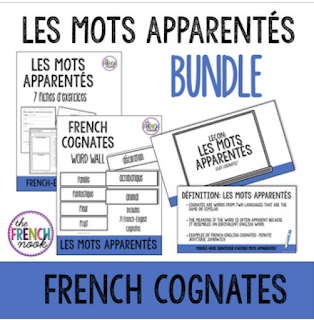I had previously written a blog post on teaching reading comprehension skills in the FSL classroom, and I wanted to expand that thought a little more and talk about some different reading strategies for our students, who are learning a new language. First, it is always a good idea to try and have your students read as often as possible. However, many of the beginner reading texts can be boring for our beginning junior students or the reading level is too difficult.
Trying to find interesting texts at an appropriate reading level for their comprehension can be challenging. See this article from FSL Homework Toolbox on how to choose appropriate texts for your learners. Be sure to choose books that are diverse and reflect the common experiences of your students and differing perspectives.
Here are some reading strategies for beginning French students:
1) Go slowly and sound out words: Reading at a slow pace and sounding out words are two important strategies for reading in a second language. By slowing down, you will pay more attention to smaller connecting words that will clarify the meaning of the text.
2) Identify cognates: The French language has a lot in common with English. If a word seems familiar to you or is spelled the same as or similar to an English word, it is likely that they are related. Identifying words that sound familiar will help you better understand what you are reading.
3) Skip words you can't figure out and come back to them: Stuck on a word? Highlight it, or underline it and look it up the meaning later.
4) Using context: Be sure to pay attention to context clues, such as photos that may accompany the text. Using these clues may help you understand the meaning of new words or phrases.
Here are some reading comprehension activities to try with your older beginner students:
French listening/reading activities – écoute et colorie
This ‘écoute et colorie’ resource contains 9 unique French listening (or reading!) activities. They are perfect for listening assessments. In each activity, your students will listen to 7 instructions and complete the task on the sheet. Students will review prepositions of location, directions, colours, family and house vocabulary to complete each activity. The activities are versatile as they can also be used as a reading comprehension activity.
Blague de la semaine French joke of the week
Humor is known to be a useful tool in the acquisition of a new language. Humor can be complicated or simple and helps to explain cultural norms. The use of humor helps keep students interested and motivated.
‘La blague de la semaine’ is a weekly routine for second-language French classrooms. This resource contains 40 French jokes of the week, using kid-friendly easy-to-understand jokes with simple language for French learners. This resource is best-suited for students in grades 4 and up.
Les mots apparentés French cognates BUNDLE
This BUNDLE contains 4 products to help you teach your students about cognates to improve their reading confidence and decoding skills. These 4 products will give beginning French students an understanding of cognates and false cognates. The use of cognates allows French language learners to use their knowledge of English vocabulary for learning new words in French. Cognates are words that have a similar spelling, pronunciation, and meaning across two languages. When students recognize words as cognates, they can access unfamiliar words and better understand what they read.






No comments
Post a Comment